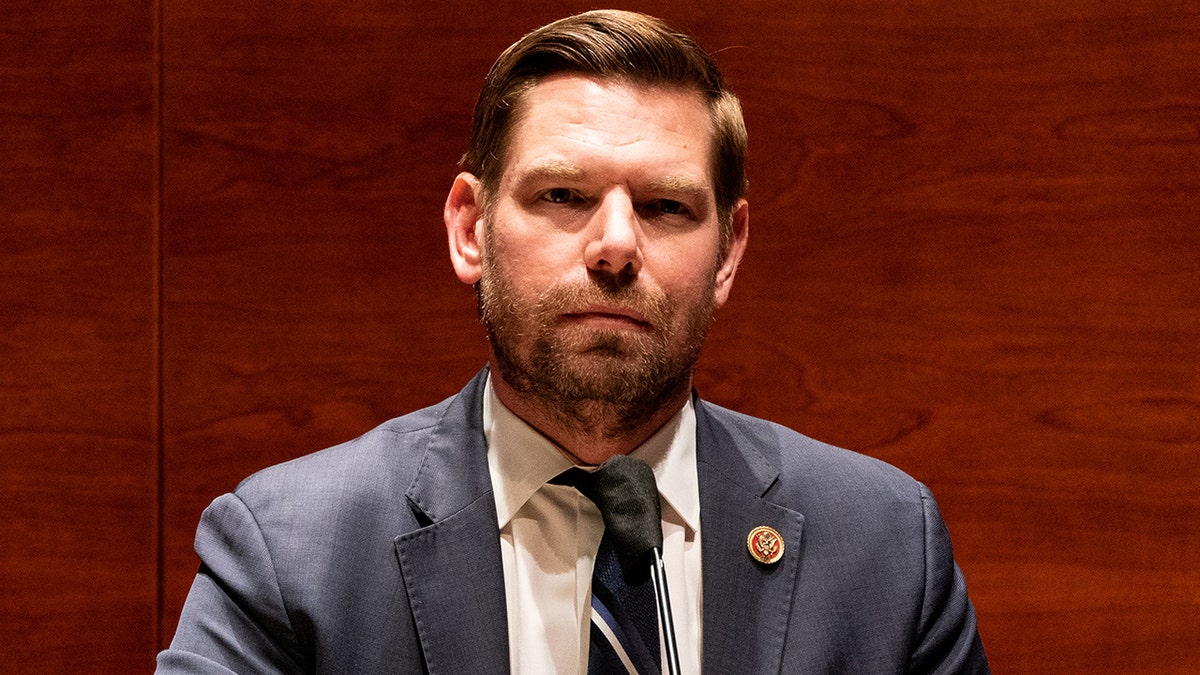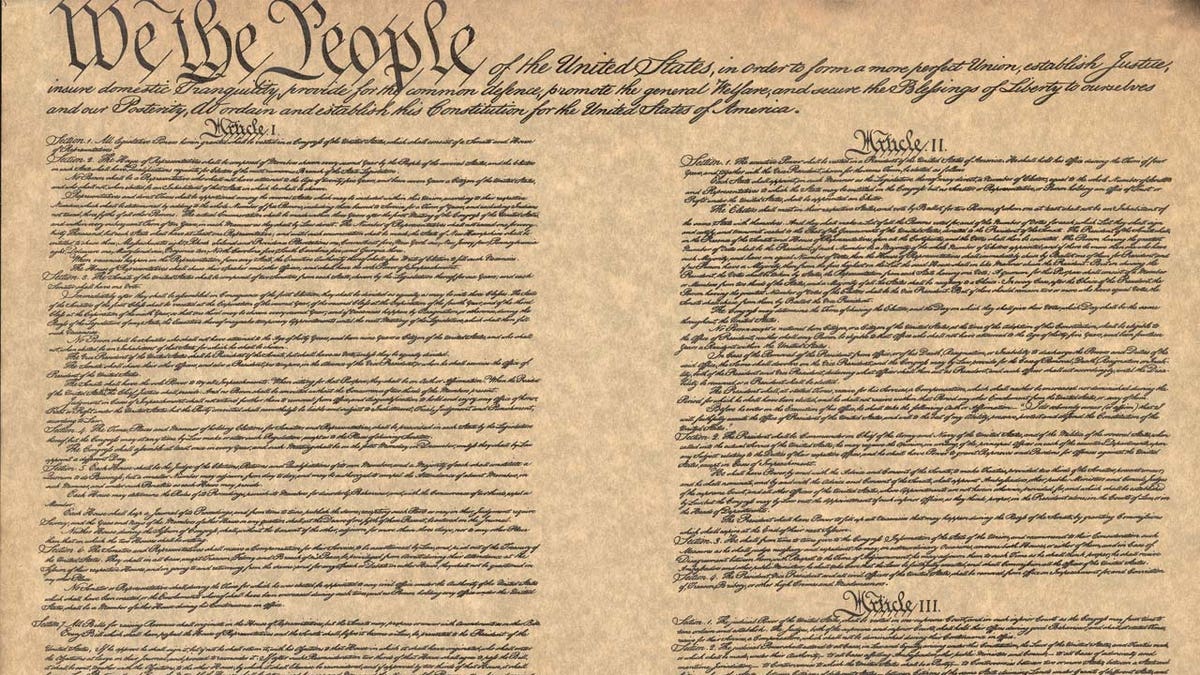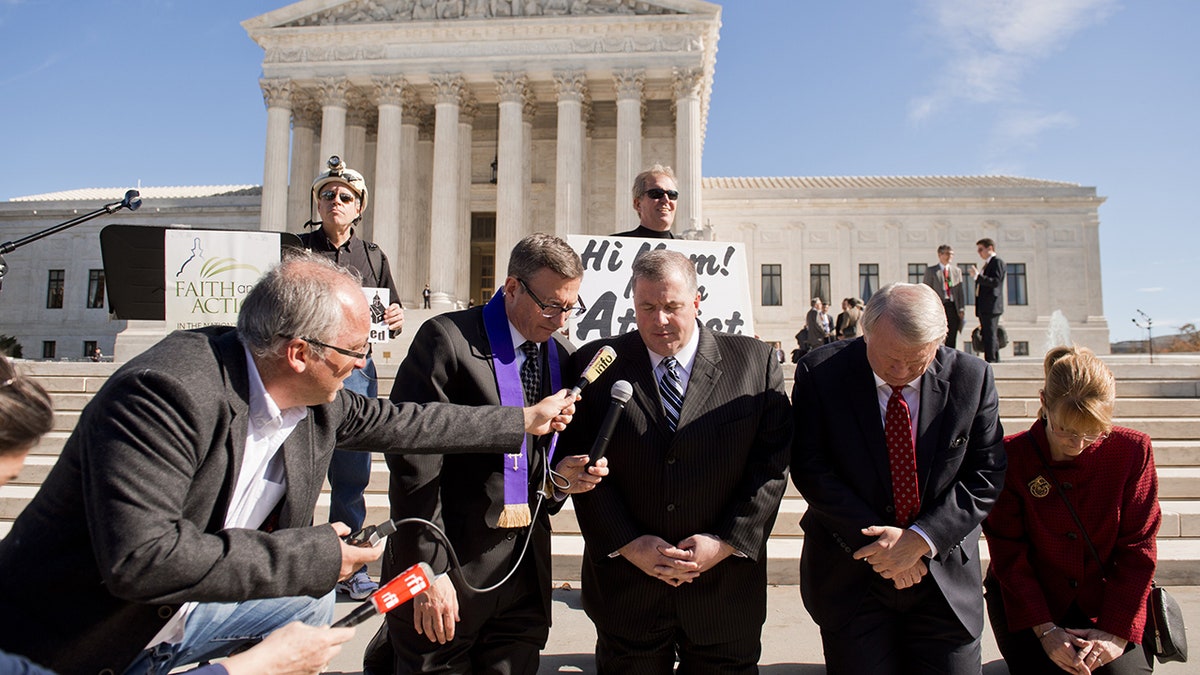Fox News Flash top headlines for August 23
Fox News Flash top headlines are here. Check out what's clicking on Foxnews.com.
Rep. Eric Swalwell, D-Calif., was blasted on Twitter Monday for falsely claiming that "separation of church and state" is in the Bill of Rights in an attempted attack on Florida Gov. Ron DeSantis.
DeSantis traveled to Pennsylvania and Ohio over the weekend to help campaign for Republican candidates there. While on the road, he touted Florida’s success in pushing back against critical race theory and requiring American civics courses in schools.
"We have a responsibility to make sure that the students that come out of our school system understand what it means to be an American. They need to understand that our rights come from God, not from the government," DeSantis said.
Swalwell attacked DeSantis’ speech, asserting that the Bill of Rights protects the "separation of church and state," a phrase not found in the U.S. Constitution.

Rep. Eric Swalwell, D-Calif., listens during a hearing of the U.S. House Judiciary Committee in Washington on June 24, 2020. (Anna Moneymaker/Pool via Reuters)
DESANTIS TOUTS ‘RECORD OF ACCOMPLISHMENTS’ IN FLORIDA GOV RACE: ‘WE HAVE THE WIND AT OUR BACK’
"It’s not like separation of church & state is in the Bill of Rights or anything…" Swalwell tweeted sarcastically in response to a clip of DeSantis' speech posted by The Hill.

A facsimile of the U.S. Constitution
Several Twitter users pointed out the fact that "separation of church and state" is not in the Bill of Rights to Swalwell and called him out on attacking DeSantis for invoking God.
"That’s correct—it isn’t!" Newsweek opinion editor Josh Hammer wrote in response to Swalwell.
"Somebody tell him," Townhall.com senior columnist Kurt Schlichter tweeted.
Political consultant Ellen Carmichael wrote, "The origin of rights (God/nature, not government) isn’t a religious notion, you dope."
"Setting aside the fact that there's an ‘establishment’ clause, not a ‘separation’ clause ... Just incredible that this quote from DeSantis would be the one to set him off on this point," attorney Casey Mattox noted.
HotAir’s Ed Morrissey tweeted, "Here is a Congressman [who] literally does not know what is actually in the Constitution. ‘Separation of church and state’ is a political argument that emerged out of the Establishment Clause, but it's not actually in the Constitution, in the Bill of Rights or anywhere else."
"It’s not, of course .. but this comment is telling. Those who believe constitutional rights are man-made tend to treat them like a pliable set of guidelines that can be bent accommodate the vagaries of contemporary politics. Ppl who believe they are inalienable, do not," The Federalist senior editor David Harsanyi tweeted.
Less than two hours later, Swalwell doubled down on his original tweet, mocking what he called a right-wing "meltdown."
"The meltdown happening on the right over this is both predictable and also hilarious. Let’s keep it going shall we…" Swalwell wrote, along with a screenshot of a description of "Separation of Church and State" from Cornell Law School.
While Cornell Law School’s description of separation of church state noted that it refers to the Establishment Clause in the First Amendment, it did not say that it is found in the Constitution and instead traced the phrase back to the presidency of Thomas Jefferson in the early 1800s.
Various Democrat politicians and members of the media have asserted the "separation of church and state" is a constitutional right to ban the invocation of religion and God in public spaces. However, constitutional experts and lawyers have noted that the phrase is not consistent with the Founders’ intention.

Religious activists pray following oral arguments in the case of Town of Greece v. Galloway dealing with prayer in government, outside the Supreme Court in Washington, on Nov. 6, 2013. (Getty Images)
CLICK HERE TO GET THE FOX NEWS APP
"Separation of church and state has nothing to do with a religious entity. That has to do with, 'Let’s just ban religion in public. Let’s ban it anywhere there’s any government.' So, they misuse the term horribly. The term might have some meaning, but it’s not in the Constitution. The Constitution’s about not establishing religion," First Liberty Institute President Kelly Shackelford recently told Fox News Digital.









































